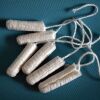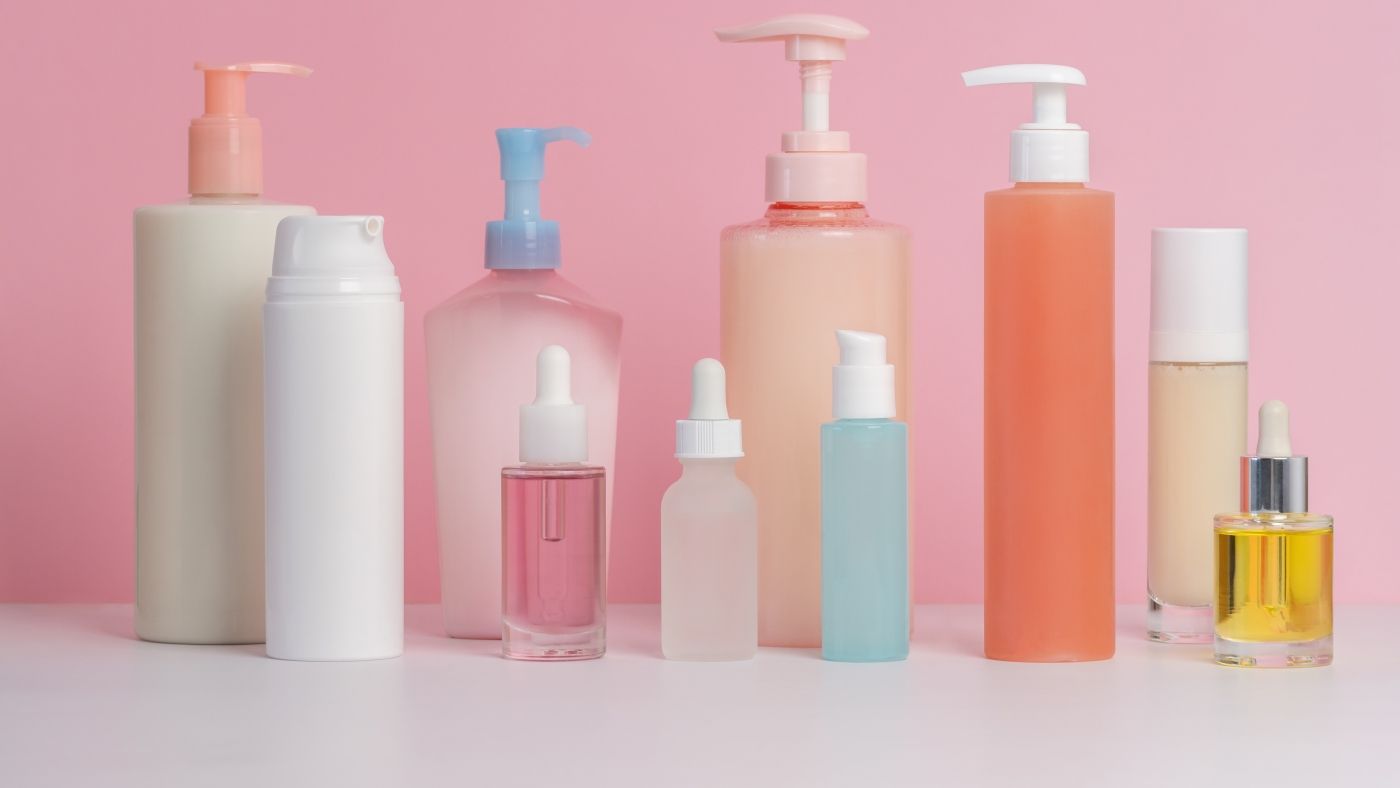
Democratic lawmakers have reintroduced a set of payments known as the “Safer Magnificence Invoice Bundle,” aiming to deliver security and transparency to the largely unregulated cosmetics {industry}.
Nadia Audigie/Getty Pictures
cover caption
toggle caption
Nadia Audigie/Getty Pictures
Private care, salon and wonder merchandise offered throughout the U.S. are topic to little federal oversight — and plenty of have been discovered to comprise poisonous elements.
The typical American grownup makes use of about 12 private care merchandise a day, Client Experiences says, leading to publicity to a median of 168 chemical substances. These can embody formaldehyde, mercury, asbestos, lead and parabens, which have been linked to most cancers, mind harm and reproductive hurt. Ladies of coloration are thought to make use of twice as many merchandise, in line with Client Experiences.
Regardless of mounting scientific analysis into the hazards posed by poisonous chemical substances, little has been achieved to ban them or at the very least label them on cosmetics.

A bunch of Democratic lawmakers hopes to alter that.
On Wednesday, Reps. Jan Schakowsky of Illinois, Lizzie Fletcher of Texas, Doris Matsui of California and Ayanna Pressley of Massachusetts launched the “Safer Magnificence Invoice Bundle,” a set of 4 payments designed to replace what they name “an more and more outdated set of federal cosmetics legal guidelines.”
Every focuses on a distinct side of product security, from banning probably the most poisonous elements in on a regular basis magnificence provides to creating protections for the ladies of coloration and salon staff who’re disproportionately uncovered to them.
“Greater than 10,000 chemical substances are used to make magnificence and private care merchandise,” mentioned Schakowsky, who authored all 4 payments. “We owe it to customers to make sure the wonder and private care merchandise they use day by day are secure.”
That is an up to date model of an identical bundle that lawmakers first launched in 2021.
In 2022, then-President Biden signed into regulation the Modernization of Cosmetics Regulation Act (MoCRA), which the U.S. Meals and Drug Administration (FDA) calls probably the most important growth of its authority to control cosmetics since its creation in 1938.
The regulation gave the FDA energy to do issues like subject obligatory recollects, require adversarial occasion reporting and droop producers’ facility registration. However lawmakers and client security advocates say it did little to really enhance the security of magnificence and private care merchandise.

The shortage of federal motion has pushed some states — together with Vermont, California, Washington and Oregon — to enact their very own bans on dozens of chemical substances from beauty merchandise lately.
The FDA didn’t remark when requested in regards to the laws.
The Private Care Merchandise Council — a number one cosmetics commerce {industry} — advised NPR in a press release that it’s “totally dedicated to upholding the very best requirements of security, high quality and transparency for cosmetics and private care merchandise.”
The group says on its web site that it has “a protracted historical past of science and security finest practices, usually going past what’s required by regulation.” In a 2024 assertion responding to considerations about PFAS, often known as “perpetually chemical substances,” in private care merchandise, the group mentioned that each one beauty elements are topic to the identical federal security necessities, including that “member corporations take their accountability for product security … very critically.”
Client Experiences says that the Safer Magnificence Invoice Bundle addresses gaps in federal regulation that weren’t addressed by MoCRA, “together with ingredient security and transparency, which is what customers care about most.” The laws has been endorsed by over 150 corporations and organizations, many centered on environmental and client well being.
Janet Nudelman, director of program and coverage at Breast Most cancers Prevention Companions, mentioned in a press release that the invoice bundle “matches the brand new excessive bar for beauty security established by the states” and can assist the FDA “get among the most poisonous chemical substances on the planet” out of magnificence merchandise.
“These payments acknowledge that everybody deserves safety from unsafe beauty exposures no matter the place they dwell, store, or work,” she added.
What chemical substances are we speaking about?

Research have linked hair merchandise primarily marketed towards Black girls, like straighteners and relaxers, to an elevated threat of sure cancers and different well being dangers.
Marvin Joseph/The Washington Submit through Getty Pictures
cover caption
toggle caption
Marvin Joseph/The Washington Submit through Getty Pictures
Years of scientific analysis has linked poisonous chemical substances in hair, make-up and different private care merchandise to well being issues together with hormone disruption, respiratory points, adversarial reproductive outcomes and most cancers.
That is particularly worrisome for Black and Latina girls, whom analysis reveals are extra usually uncovered to harmful elements like formaldehyde in nail and hair merchandise.

A Client Experiences research revealed in March discovered cancer-causing elements in 100% of the ten hottest artificial hair merchandise utilized in braids, extensions and different hairstyles widespread with Black girls.
One other research, revealed within the journal Environmental Science & Know-how Letters in Might, discovered that formaldehyde and formaldehyde-releasing merchandise are current not solely in hair relaxers however in a variety of magnificence merchandise that get much more common use, together with cleaning soap, lotion, shampoo, conditioner and eyeliner.
And a report launched Thursday by Breast Most cancers Prevention Companions, trying on the risks of fragrances particularly, discovered that over 98% of perfume chemical substances both lack primary security knowledge or are categorised as excessive or probably excessive concern by scientific authorities.
“A gaping federal labeling loophole mixed with a self-regulated perfume {industry} permits for dozens — generally even a whole bunch — of chemical substances to cover underneath the phrases, ‘perfume,’ ‘parfum,’ ‘aroma’ or ‘taste’ on the product labels of magnificence and private care merchandise,” the report reads.

Client advocates say product security is changing into much more pressing, as women flip to make-up and skincare merchandise at a youthful age and breast most cancers charges on the rise amongst girls underneath 65.
Whereas the European Union has banned over 2,400 poisonous chemical substances from private care merchandise, the FDA solely restricts a few dozen. Advocates and lawmakers need the U.S. to start out catching up.
“It is time to shut the loopholes that permit poisonous chemical substances within the merchandise we use on our our bodies every single day,” Schakowsky mentioned.
What would these legal guidelines do?
The payments have been referred to the Home Committee on Power and Commerce for consideration, step one within the legislative course of. This is what they’d do if handed:
- The Poisonous-Free Magnificence Act would ban two total courses of chemical substances — phthalates and formaldehyde-releasing preservatives — and 18 of probably the most hazardous chemical substances, together with mercury, formaldehyde and lead. These substances have already been banned by a number of U.S. states and the European Union.
- The Beauty Provide Chain Transparency Act would require suppliers of uncooked supplies, elements and personal label merchandise to reveal elements and security knowledge to beauty corporations to enhance industry-wide transparency and result in safer merchandise.

- The Beauty Hazardous Ingredient Proper to Know Act would require that merchandise’ labels and web sites disclose “all elements that may pose a well being threat to customers,” from fragrances to flavors. Corporations would even have to supply direct hyperlinks to security data for any ingredient identified to hurt human well being.
- Beauty Security Protections for Communities of Shade & Salon Employees would fund $30 million in analysis, public training and safer alternate options to poisonous chemical substances in beauty merchandise marketed to salon staff and girls of coloration, particularly Black girls. It will additionally direct the FDA to supervise the security of artificial hair merchandise.
Janette Robinson Flint, co-founder and government director of Black Ladies for Wellness, mentioned in a press release that she hopes Congress will “meet this second with a way of urgency.”
“Ladies, women, and all folks on this nation deserve higher from our legislators, regulatory businesses (EPA/FDA), and firms,” she mentioned.

